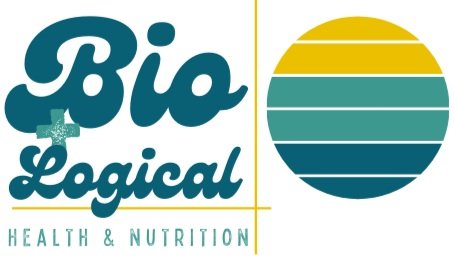Bipolar disorder and other brain/mental health issues seem to be on the rise in the US, and the age at which they are being diagnosed seems to be getting younger and younger. Clearly, there's something going on in this country that needs to be addressed -and fast- because the health care costs of treating them is quickly skyrocketing.
You're told that there is no cure...the best you can hope for is a lifetime of medication and therapy.
Oh, and tears.
And rage.
And hopelessness and grief and despair and fear.
But what if the things you're being told weren't actually true? What if you didn't need to live every moment as though you were walking on eggshells?
Our current model of health care is operating under research that is decades old and the system profits from keeping you ill, ill-informed, and scared. However, take comfort in knowing that this paradigm is rapidly changing.
There are in fact, many things you can do to address mental health issues.
All health starts in the gut. This is especially true for brain health. Why? Guess where neurotransmitter synthesis starts? In the gut. Guess where the brain has the most nerve connections to? The gut.
Let me state that again: the health of your brain starts with the health of your gut.
The human brain has over 100 billion neurons, each connected to 10,000 or so other cells, which equals roughly 1000 trillion connections in the brain...sending and receiving an unbelievable amount of messages each second.
Neurotransmitters are chemicals that transmit these messages between neurons in the brain. They are responsible for not just your mood and emotions, but also things like learning ability, addictions, sleep, energy, pain perception, appetite, memory, and regulating your body temperature. In fact, everything we do is a result of our nerve cells talking with one another via electrical and chemical signals.
Neurotransmitters are made primarily via digestion of dietary proteins which are broken down into amino acids. Certain amino acids are precursors to neurotransmitters and other hormones, along with other vitamins and co-factors that are required for neurotransmitter synthesis. So it's not enough to just eat a healthy diet, your gut also has to be able to break down and assimilate the nutrients from the food you eat as well. If you have leaky gut, dysbiosis, or poor digestive function, it may be safe to say that you are also malnourished. This will affect cognitive function and overall health and performance.
What is your diet like? How well do you digest food? Do you have digestive disturbances? Do you have food allergies? Have you taken antibiotics? Do you eat a standard American diet? Do you eat a lot of sugar? Have you been diagnosed with Crohns, IBS, IBD, or heartburn/GERD? Do you have bloating, gas, diarrhea, constipation, or stomach pain/cramps?
These are just a few questions that need to be addressed. There are more.
You can test for gut health to help determine not only how well it is functioning and whether you are malnourished, but also to determine whether there may be other pathologies or co-infections affecting the gut and digestive system and possibly causing inflammation and other issues.
Inflammation is a big deal because it's typically self-perpetuating and causes oxidative stress, especially in the mitochondria. Inflammation in the brain can shunt the amino acid tryptophan towards anxiety-producing chemicals like quinolinate instead of calm-producing chemicals like serotonin and melatonin.
Serotonin is a neurotransmitter that plays a role in feelings of self-worth and happiness, and helps protect against depression and anxiety. Many anti-depressant medications are SSRIs (selective serotonin re-uptake inhibitors) that modulate the body's serotonin response. However, there's been a lot of research uncovering the fact that SSRIs may not actually work the way they're stated to, and in fact, much of the benefit that is realized from them is because they act upon inflammation -not serotonin. They also come with a dangerous list of side-effects.
Melatonin is synthesized from serotonin and is typically referred to as the sleep hormone, but it's role in human functioning goes far beyond just sleep. It's a major player in the proper functioning of your circadian rhythm, and your ability to keep proper circadian function is probably the single most important factor for overall health.
Your circadian rhythm is your body's 24 hour internal clock that governs virtually every single metabolic and physiologic process in the body, and is regulated by exposure to light/dark cycles. The body's master clock is called the suprachiasmatic nucleus (SCN). You are supposed to "wind" this clock daily by letting the sun hit your eyes in the morning. Once it is properly wound, it's then responsible for "winding" all the other clocks that are in front of your cells (every cell in your body has four clock genes in front of it.)
What do you think happens when none of the trillions of clocks in your body are in sync and telling proper circadian time?
Chaos. Inflammation. Dis-ease.
Daily exposure to sunlight on the skin and eyes is also critical to good health everywhere else, not just in the brain. Your skin and eyes are one giant solar panel designed for just this purpose, so it makes no sense to avoid the sun or keep your skin and eyes covered every time you go outdoors. More on this in another post.
Sunlight also plays a role in the creation of another neurotransmitter, dopamine. Dopamine helps us focus and attend to matters at hand. It's also critical for memory, motor skills, motivation, interest, drive, and has a role in addictions. When you don't have enough dopamine, you don't feel alive. It can lead to self-medicating with drugs, alcohol, and over-eating.
The time you spend in the sun is just as important as the time you spend in the darkness. There must always be balance in everything you do when seeking optimal health. Quality and quantity of sleep also matters, because the body undergoes repair and regeneration only when you are asleep. So stop staring into a screen late at night when you should be regenerating and repairing instead.
There are other factors to mental health as well...hormone imbalance, chronic stress, and living in a sympathetic state vs parasympathetic state all the time (fight or flight vs rest and digest) to name a few. All these things matter not just for bipolar disorder, but also for ADD, ADHD, depression, Alzheimer's, and just about every other mental health issue out there, as well as overall health and wellness.
The main takeaway for you here is that you are not broken and unfixable. There's a lot of things one can and should address to help optimize brain health and mental functioning instead of simply accepting their fate. A good functional health practitioner will take the time to listen to your story and run the appropriate labs to help uncover the root cause of your dis-ease, so that you can get back on the road to living your best life.
There is no reason to live in fear. There is always hope.
-J
links:
https://www.ncbi.nlm.nih.gov/m/pubmed/18419323/?i=5&from=/27739341/related
https://www.ncbi.nlm.nih.gov/m/pubmed/16019718/?i=2&from=/18419323/related
https://www.ncbi.nlm.nih.gov/m/pubmed/27663044/
http://www.newsweek.com/blue-blocking-glasses-may-help-treat-bipolar-disorder-promote-sleep-484065
http://kellybroganmd.com/alis-story-healing-bipolar-disorder-and-suicidality/

